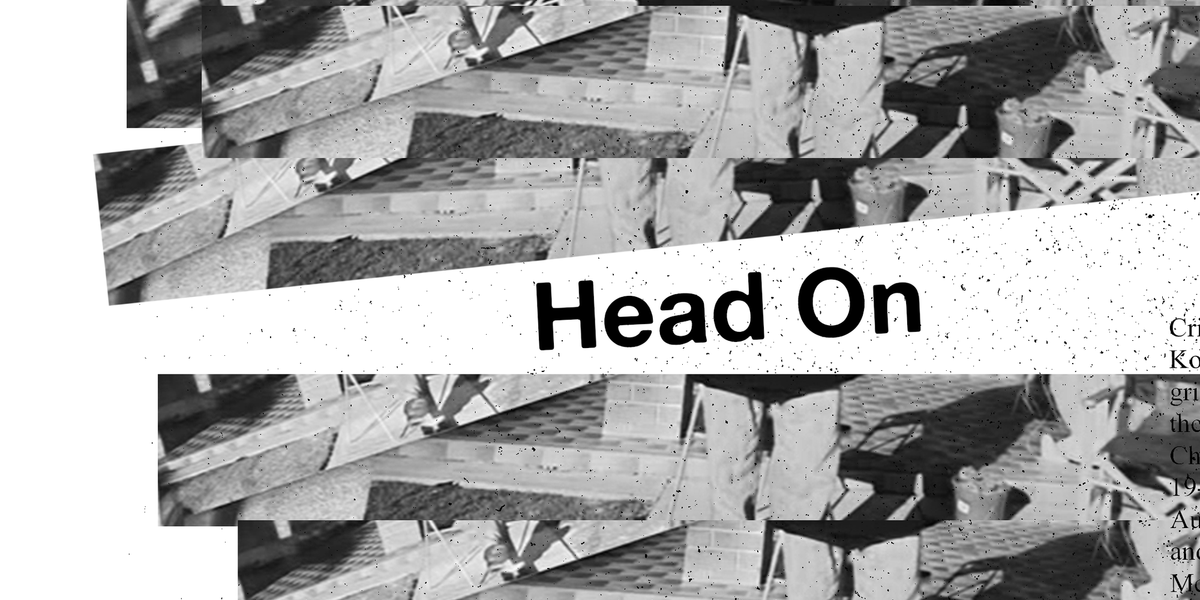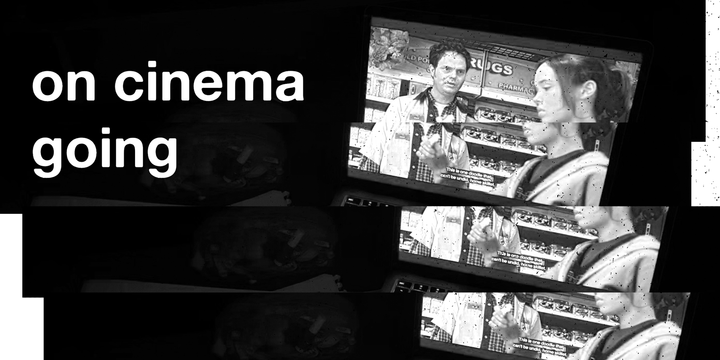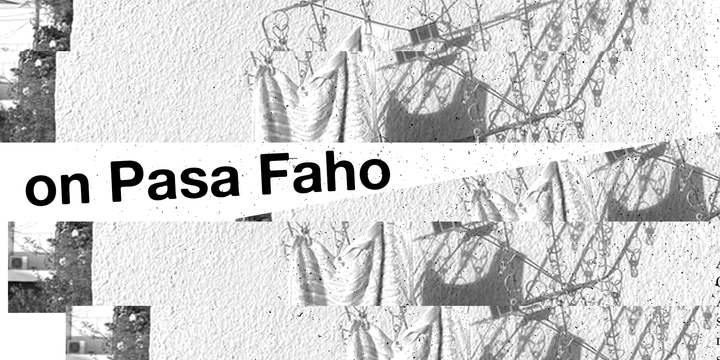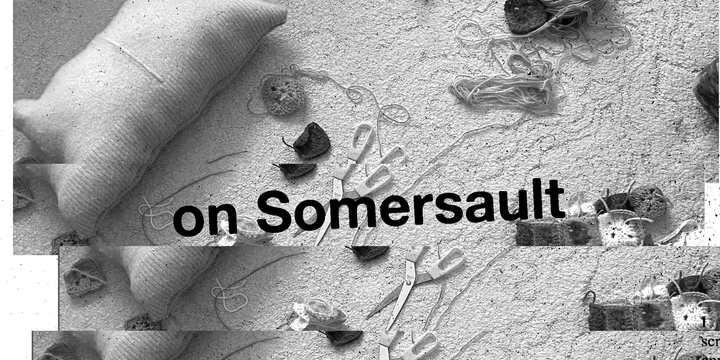on this and that, #1 Nov 2025
on Head On and seeing yourself on screen

Head on and seeing yourself on screen
Critically acclaimed, Ana Kokkinos’ 1998 film Head On is a gritty, exploratory work based on the 1995 novel Loaded by Christos Tsiolkas. It follows Ari, a 19-year-old 2nd generation Greek Australian who is unemployed and living with his parents in Melbourne. Across 24 hours, we see Ari roam the streets, engaging in casual sex (mostly with men) and illicit drugs, unbeknownst to his conservative working-class Greek family. Through his own experiences and interactions with the Greek community, the film paints a picture of the suffocating repression Ari is actively retaliating against, whether it be through his younger sister’s secret Lebanese boyfriend, to his best friend’s compliance in conservatism by marrying their family friend (who he doesn’t love at all) to his ostracised transgender friend, who adopts the identity of her late mother Toula (but is also known as ‘Johnny’ throughout the film).
The film won many nominations and awards and gained recognition both within Australia and internationally, screening at the Cannes Film Festival and winning awards in Los Angeles and San Francisco. However, it’s had a contradictory reception, being both revolutionary and shocking, depending on who you spoke to. Ana Kokkinos herself has said in an interview with Neos Kosmos Magazine, “Generally speaking, those who were under 40 really loved the film and those who were over 40 hated the film, and they hated the film with a vengeance. Even here, when I returned, there were a lot of Greek people who were angry with me.” Which I personally find particularly interesting in relation to a dinner table conversation I had two weeks ago.
To keep things spicy at the Greek family function (kidding —I would never, for legal reasons, mum and Theo Bill, this is a JOKE), I brought up Kokkinos’ controversial film. Now, having known all these people my whole life, I had made some pretty safe assumptions about their opinions on the film; however, it was fascinating to hear them, nonetheless. The conversation went a little like this:
“Ok, but thoughts on the film Head On?”
(paraphrased responses)
“It was so confronting and so intense and so real and so raw, and I feel like they shouldn’t have put that much on TV, it was too much for me. It was so real, I felt like I was in the alleyways with him in the sex scenes, and they stayed with me afterwards for a long time.”
“As a Greek male Australian who has that lived experience, you saw the Greek bit in it that was so authentic and relatable, but then it’s like bang something you don’t expect and don’t relate to in a very confronting and shocking way. You know, for the time, it was cutting edge, it was like nothing we’d ever seen before.”
I would argue that, like for a lot of immigrants / 2nd generation Australians, conservatism is rife, and I believe this to be, for the most part, a residual impact of attempting to fit in with White Australia and the inherent need to “keep up appearances” to do so. But still, the intensity of their responses spoke volumes to me about the film’s reception and forced me to question the intersection of relatability and unrelatability, of knowing and unknowing, and at what point are you asking too much from a conservative audience?
Research has shown that activist groups that rely on “moral shocks” — graphic imagery or information that provokes emotional outrage or moral dissonance —compel individuals to act (think vegans in the CBD with the dead animal videos), and that this works best when the person has pre-existing relative moral values, cultural themes and worldviews. However, these “moral shocks” can also collide with a viewer’s inherent social identity and unique perspective; in which case, the opposite can occur, and people can become very defensive because, in essence, things are hitting too close to home. When thinking about the question I posed earlier in relation to Head On, it’s fascinating to consider the research, which essentially suggests that the more a message resonates with familiar moral or cultural meanings, the stronger its emotional impact—for better (prompting empathy and action) or for worse (blatant disapproval and rejection of opposing viewpoint).
Kokkinos’ film is notoriously polarising, but I don’t think that’s necessarily a bad thing. Although it shocked and disturbed my family, we still talk about it at the dinner table years later. To conclude the Head On family function discussion, both my mum and uncle admitted that, despite not having seen the film again since its initial release in 1998, they believe the impact on them nowadays would be far less visceral and admit that a large part of the shock factor was that they’d never seen anything like it before.
This, to me, IS SO FREAKING IMPORTANT!!!! Desensitisation can be terrifying for almost everyone; it involves confronting a fear of the unknown, and questioning your shifting viewpoints can feel like standing on uneven ground. Although not for everyone, Kokkinos’ film encapsulates a blatant rejection of conservative Greek values in a very confronting and realistic way. It doesn’t offer answers, which is why I think many people don’t like it, but it does offer perspective; it’s a fuck you to authority and repression and a testament to the tenacity of those daring to go against the grain, whether they know where they are going or not.
References
Jasper, J. M., & Poulsen, J. D. (1995). Recruiting Strangers and Friends: Moral Shocks and Social Networks in Animal Rights and Anti-Nuclear Protests. Social Problems, 42(4), 493–512. https://doi.org/10.2307/3097043
Stamocostas, C. (2019, January 13). “Head On”: The film that helped change Australian culture. Neos Kosmos. https://neoskosmos.com/en/2019/01/14/life/film/head-on-the-film-that-helped-change-australian-culture/




Comments ()